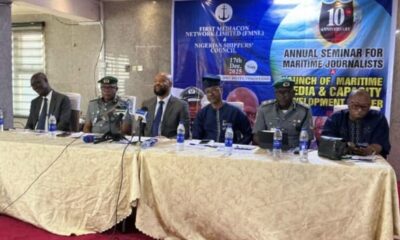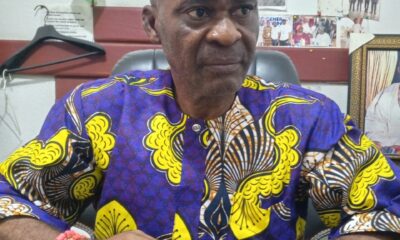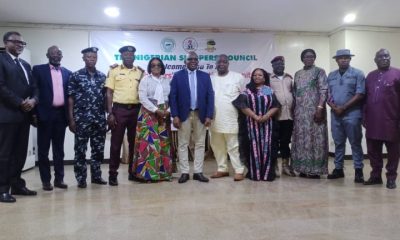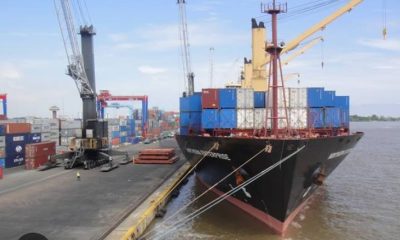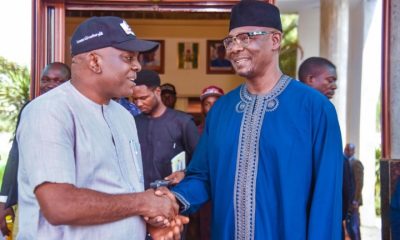Maritime Agencies
Shippers’ Council, FCCPC Collaborate for the Benefit of Port Users.
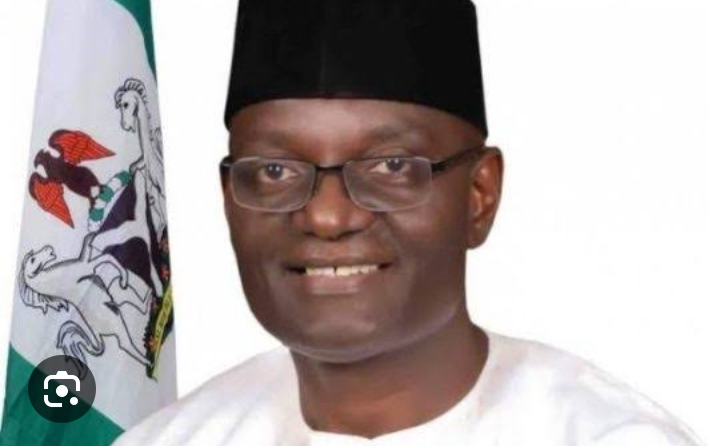
By Izuchukwu Ozoemena
As the Nigerian Shippers’ Council (NSC) perfects fresh guidelines to protect the rights of consumers of shipping services in Nigerian ports, it has decided to collaborate with the Federal Competition and Consumer Protection Commission (FCCPC) to achieve an enduring objective.
The NSC Executive Secretary/CEO, Barr Emmanuel Jime stated this in Lagos, Tuesday, during a stakeholders’ sensitization event to enlighten consumers of shipping services on their rights and responsibilities in the ports and the shipping sector in general.
When the Consumer Protection Regime (CPR) guidelines are documented and implemented, Jime explained, it will enthrone honesty and transparency in ports business to the benefit of consumers and providers of port services.
He recalled that in January 2022, the ports economic regulator and FCCPC signed a Memorandum of Understanding aimed at achieving an effective collaboration in the protection of providers and consumers of shipping and ports services.
Jime who was represented by the NSC’s Human Resources Director, Mrs Ada Okam, said the collaboration with the FCCPC will help in information and intelligence sharing beside encouraging competition.
It will also enhance the prosecution of service providers when they err, as well as promote consumer education and awareness creation.
Barr Jime said that sensitization exercises at various ports and inland locations would be carried out to enable stakeholders make necessary inputs.
“As we are all aware, the shipping industry comprises various players who, in the course of daily transactions, are bound to trample upon and infringe on one another’s rights.”
“Let me use this opportunity to express the commitment of the NSC to remain fair, neutral, unbiased, and provide a level playing field. In our capacity as the port economic regulator, we shall remain open to consultation and will ensure that critical decisions in the port and shipping sector are arrived at by consensus opinion of stakeholders,” the NSC boss said.
In his remarks, Babatunde Irekare, FCCPCO Executive Vice Chairman, said it was important that consumers’ rights and privileges in the ports and shipping sector are protected as this is pivotal to the effectiveness and development of the country’s economy.
FCCPC’s Legal Services Director, Mr. Tam Tamunokobia, represented Mr Irukera.
He underlined the need to protect the consumer and his rights as issues concerning them are uppermost.
“To that effect, we need to choose a frontier of our cooperation and collaboration.”
“I have looked at the Shippers’ Council Act; I have looked at our Act and in both cases collaboration is needed and highlighted. Where there is effective collaboration, there is no room for fighting. When we collaborate, the consumers will be the beneficiaries”, Irukera added.
In his contribution, the Director of Programme, Convention on Business Integrity (CBi), Mr Emmanuel Bosah stressed the importance of enforcing Standard Operating Procedures (SOPs) by the NSC to ensure effective service delivery. He noted that service providers in the private sector, such as shipping companies, must equally introduce transparent SOPs to achieve clear charges, timeliness, and procedures, without compromising their trade secrets.
He sued for introducing a technology-based grievance-reporting mechanism in the form of the Port Service Support Portal (PSSP) and the Help Desk operated by the Maritime Anti-Corruption Network under the current port reform initiative. This has enabled port users to report incidences of corrupt demands by port officials in real-time, among other complaints.
Also speaking, the Managing Director of MSC Shipping, Mr Andrew Lynch said five major consumer rights include the right to be informed, to choose, right to consumer education, right to seek redress, right to fair dealings and to be heard.
Represented by Olumide Adefisan, the company’s Head of Customer Services for Import and Export, Lynch also enumerated the responsibilities of consumers, stressing that all consumers in the port and shipping industry should be honest with all their provided information. They should be honest in their declarations so as to build and sustain integrity in the maritime sector.
Maritime Agencies
Suspend Charges Review, Engage Stakeholders, Shippers’ Council Tasks Shipping Companies
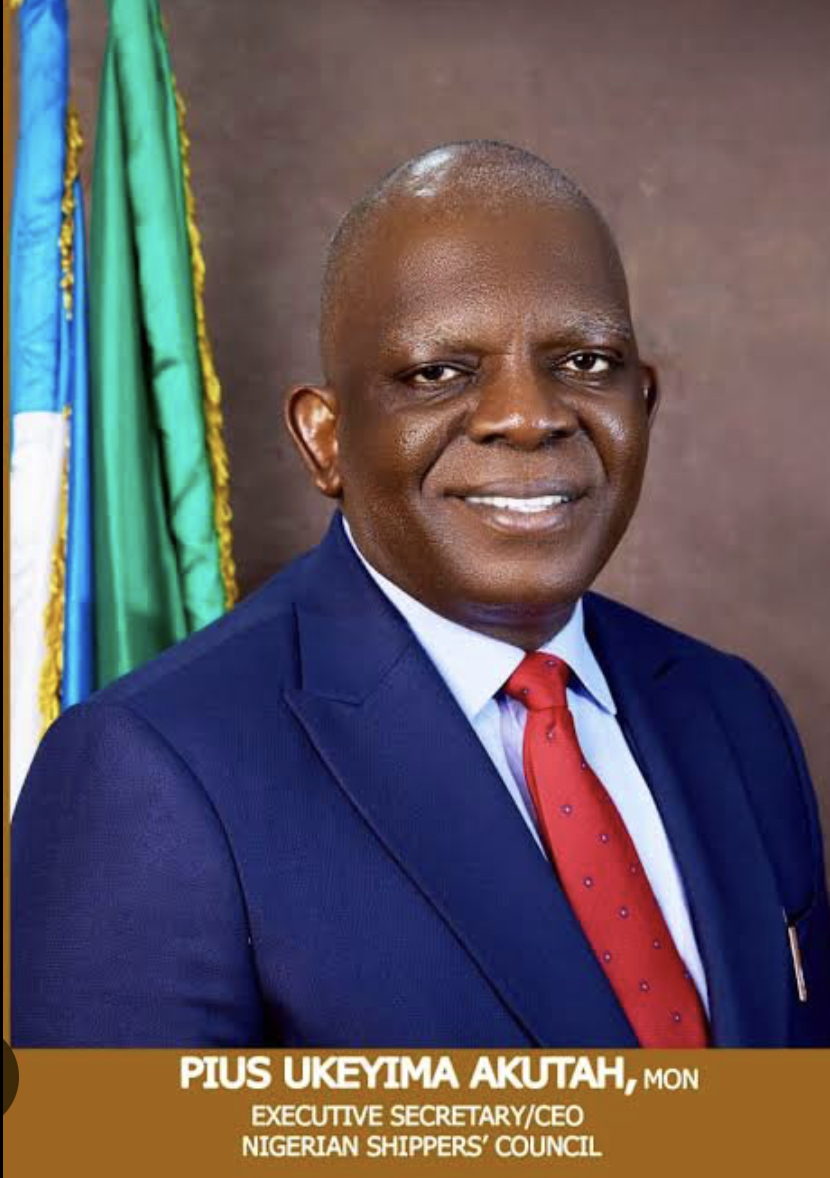
By Izuchukwu Ozoemena
All shipping companies, shipping agents, and terminals operating within Nigerian ports have been given marching orders to suspend and discontinue the implementation of any review or upward adjustment of their charges until they have fully engaged their stakeholders.
This is contained in a release by Rebecca Adamu, Head of Public Relations of the Nigerian Shippers’ Council, Nigeria’s Ports Economic Regulator.
The Nigerian Shippers’ Council clarifies that the recent adjustment was approved strictly in accordance with her statutory mandate as the Port Economic Regulator in which case all tariff reviews were conducted in a transparent, structured, and well-defined regulatory process.
”These processes included detailed technical and consultative engagement with affected service providers aimed at examining the cost drivers, operational realities, investment obligations and regulatory compliance.”
”The engagements did not constitute automatic approvals; rather, they informed a broader evaluative process. Final determinations were reached only after rigorous internal, technical, and financial assessments guided by empirical evidence, regulatory benchmarks, and prevailing economic conditions.”
”Notwithstanding, shipping companies, agents, and terminal operators are hereby directed to suspend any intended review of charges until they have duly consulted and engaged their stakeholders. As the Port Economic Regulator, the Nigerian Shippers’ Council will wield the big stick against any port service providers disrupting port operations”, the statement warned.
The Council emphasised that transparency, fairness, and stakeholder participation are fundamental principles underpinning port economic regulation in Nigeria.
The Executive Secretary/Chief Executive Officer of the Council, Dr. Pius Akutah (MON), further warned that the Council is empowered under its regulatory mandate to apply appropriate sanctions against defaulting operators, including enforcement measures provided for under relevant regulatory frameworks. He encourages constructive engagement, dialogue, and compliance.
Any service provider that proceeds with charge reviews without stakeholders’ engagement should be prepared to face decisive regulatory action.
He assured that the Nigerian Shippers’ Council remains committed to protecting the interests of port users, promoting fair competition and ensuring a balanced and predictable business environment within the Nigerian maritime industry.
Customs
FG Inaugurates Nigerian Shippers’ Council Board, Highlights Need for Reduced Port Costs, Fair Pricing.
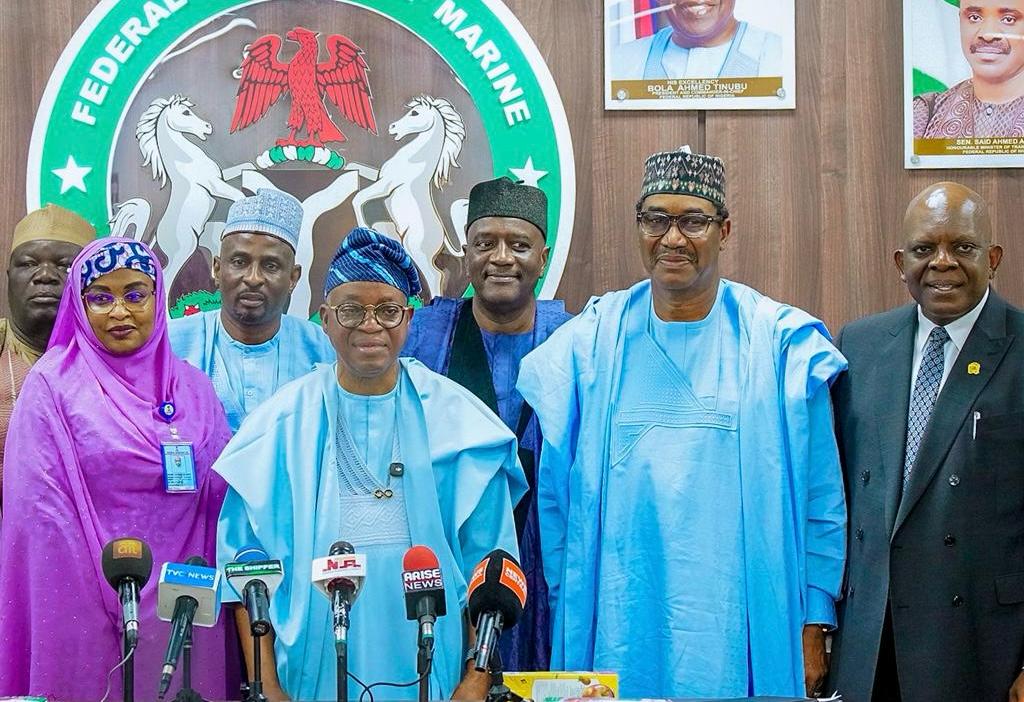
By Izuchukwu Ozoemena
The inauguration of a new Board for the Nigerian Shippers’ Council, Monday, sets a clear reform agenda for Nigerian seaports as reduced port costs and fair pricing now take centre stage.
Dr Bolaji Akinola, Special Assistant (Media and Publicity) to the Minister of Marine and Blue Economy, stated this in a statement.
At the event, Minister of Marine and Blue Economy, Alhaji Adegboyega Oyetola charged the Board to focus on improving accountability in operations, reduced cost of doing business and strengthened regulation processes across the shipping sector.
The reconstitution of the Council’s governing structure, he stated, follows the resolve of President Bola Ahmed Tinubu to ensure that good governance and repositioning of the Marine and Blue Economy should serve as a key engine of national economic growth under the Renewed Hope Agenda.
Oyetola reminded the Board that as Nigeria’s Port Economic Regulator, the Shippers’ Council is central in efforts to achieve efficiency, transparency and fairness in port charges and service delivery.
Robust economic regulation, the Minister maintained, is critical to lowering trade costs, protecting shippers and improving Nigeria’s competitiveness within the sub-region and beyond.
The Minister urged Board members to provide firm strategic leadership and effective oversight, insisting that regulatory decisions must translate into measurable outcomes, including improved port efficiency, fair pricing, and enhanced trade facilitation.
He called for seamless collaboration between the Board and the Council’s management, while assuring members of the Ministry’s full support in delivering their mandate.
Dr Ibrahim Shema, former Governor of Katsina State, is the Chair of the newly -inaugurated Board. Other members are Dr. Pius Akutah, MON, Executive Secretary/ Chief Executive Officer of the Council; Dr. Emi Membere-Otaji (NACCIMA); Mr. John Aluya (MAN); Rt. Hon. Chiji Collins and Mrs Olufunmilayo Olaseinde.
Others are Dr. Funmilola Rashidat Adeoti; Alhaji Mele Kofo Gladem; Mrs Hafsatu Mohammed (NNPCL); Hon. Maharazu Adamu Dayi; and Mrs. Uzoamaka Okereke from the Ministry of Marine and Blue Economy.
Speaking on behalf of the Board, Dr. Shema thanked President Tinubu for the opportunity to serve and commended the Minister for his leadership of the sector. He pledged that the Board would uphold professionalism and integrity while supporting reforms aimed at improving port performance, strengthening regulatory effectiveness, and delivering tangible benefits to shippers and the national economy.
NSC serves as Nigeria’s Port Economic Regulator, mandated to promote efficiency, transparency, competitiveness, and fairness in port operations, while safeguarding the interests of shippers and enhancing the country’s maritime trade environment.
Maritime Agencies
OIL FACILITIES PROTECTION: Tompolo’s Tantita Acquires High-Tech Drones From US Firm.

By Izuchukwu Ozoemena
Tantita Security Services Ltd (TSSL), the company in charge of security surveillance over oil and gas installations in Nigeria’s Niger Delta region, is in collaboration with Textron Systems Corporation, a United States–based defence and aerospace company, to supply her three advanced Aerosonde Mk. 4.7 Vertical Takeoff and Landing (VTOL) uncrewed aircraft systems (UAS).
TSSNL owned by Chief Government Ekpemupolo (popularly known as Tompolo) disclosed the business deal in her website publication of December 29, 2025. The drones will be delivered in a fully ITAR-Free configuration.

The Aerosonde Mk. 4.7 is designed to operate without runways, utilising hybrid quadrotor technology that enables vertical takeoff and landing, as well as fixed-wing flight.

The Aerosonde Mk. 4.7 VTOL UAS, Textron Systems says, is a mature, industry-proven autonomous platform known for its high reliability and operational flexibility. Its dual-mode capability allows it to operate seamlessly in complex and high-risk environments, making it well-suited for security operations within Nigeria’s oil and gas sector.
Giving further insight into the contract, Senior Vice President, Air, Land and Sea Systems at Textron Systems, David Phillips, said the deployment would significantly enhance Tantita’s operational capability.
”The Aerosonde Mk. 4.7 VTOL UAS is a proven solution that will enable Tantita Security Services to expand its capabilities to protect the oil and gas infrastructure essential to Nigerian security and prosperity,” he stated.
The Aerosonde platform has accumulated over 700,000 flight hours across some of the world’s most challenging operating environments, underscoring its reliability and performance.
Tantita Security Services is expected to deploy the systems to strengthen surveillance and protection of critical oil and gas assets across Nigeria.
The contract also includes options for operator training and the supply of additional aircraft to support future capability expansion. Textron Systems noted that the agreement builds on a previous Foreign Military Sale (FMS) contract to Nigeria, further highlighting its ongoing commitment to supporting Nigerian security operations.
Textron Systems is a global leader in uncrewed air, land and sea systems, with the Aerosonde family of UAS currently supporting international customers and operations aboard more than 10 U.S. Navy ships. The company is a subsidiary of Textron Inc. (NYSE: TXT), a diversified multinational with interests spanning aviation, defence, industrial manufacturing and finance.
With multiple payload configurations and comprehensive training and support services, the Aerosonde Mk. 4.7 VTOL UAS offers a versatile and efficient solution for security operations in demanding environments, reinforcing Tantita Security Services’ role in safeguarding Nigeria’s critical energy infrastructure.
-

 Maritime Agencies2 weeks ago
Maritime Agencies2 weeks agoOIL FACILITIES PROTECTION: Tompolo’s Tantita Acquires High-Tech Drones From US Firm.
-

 Maritime Agencies3 weeks ago
Maritime Agencies3 weeks agoNEW YEAR CELEBRATION: MARAN Appreciates Stakeholders, Requests Greater Support and Collaboration in 2026.
-
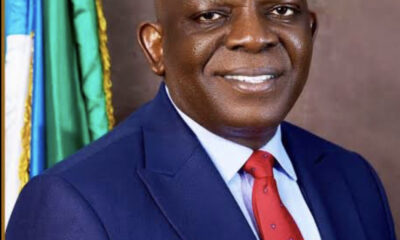
 Maritime Agencies2 days ago
Maritime Agencies2 days agoSuspend Charges Review, Engage Stakeholders, Shippers’ Council Tasks Shipping Companies
-
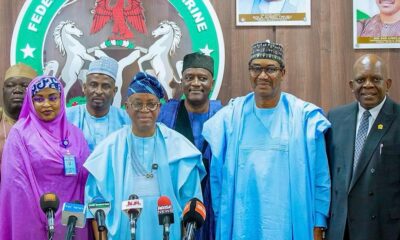
 Customs2 days ago
Customs2 days agoFG Inaugurates Nigerian Shippers’ Council Board, Highlights Need for Reduced Port Costs, Fair Pricing.


